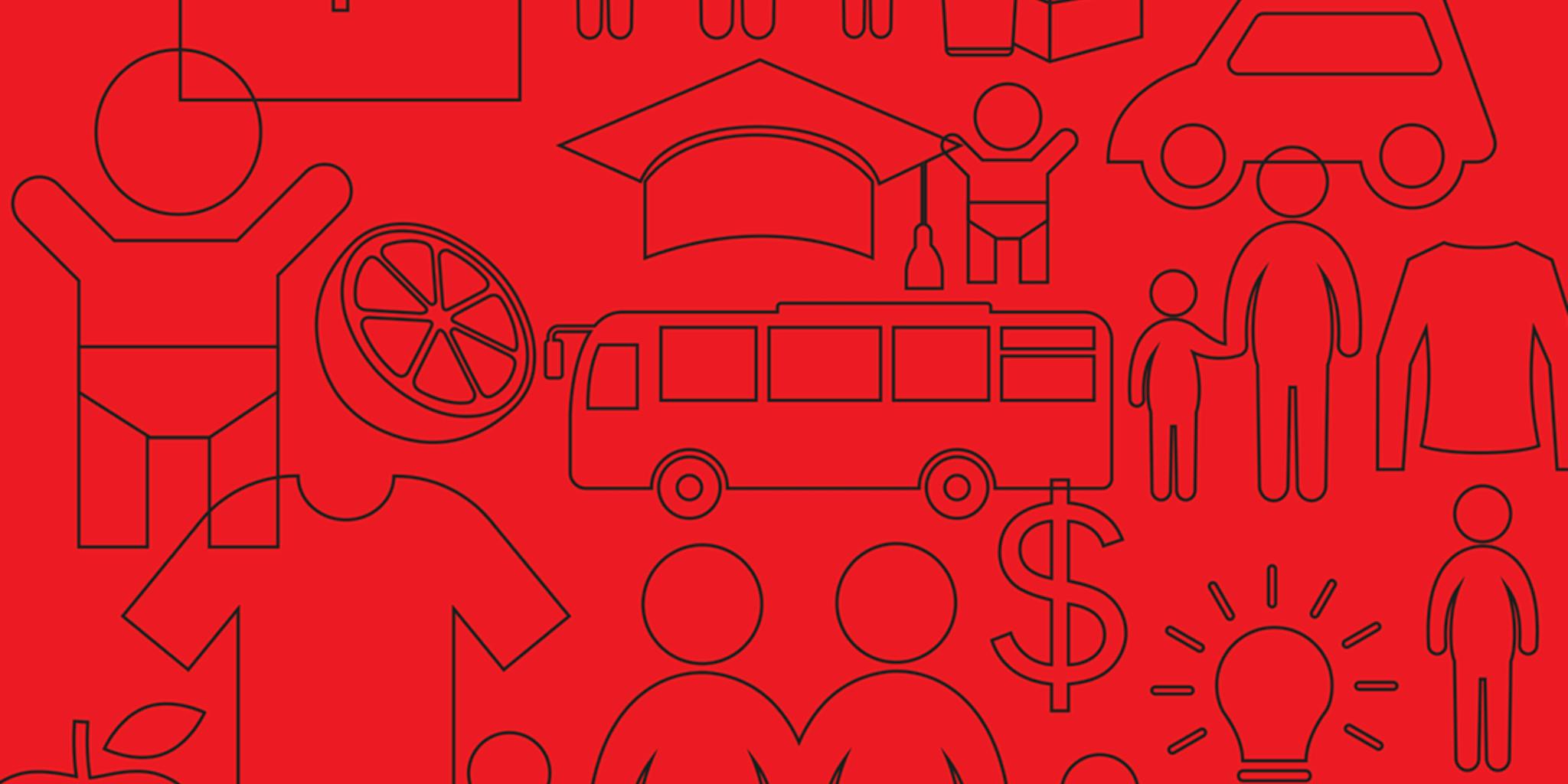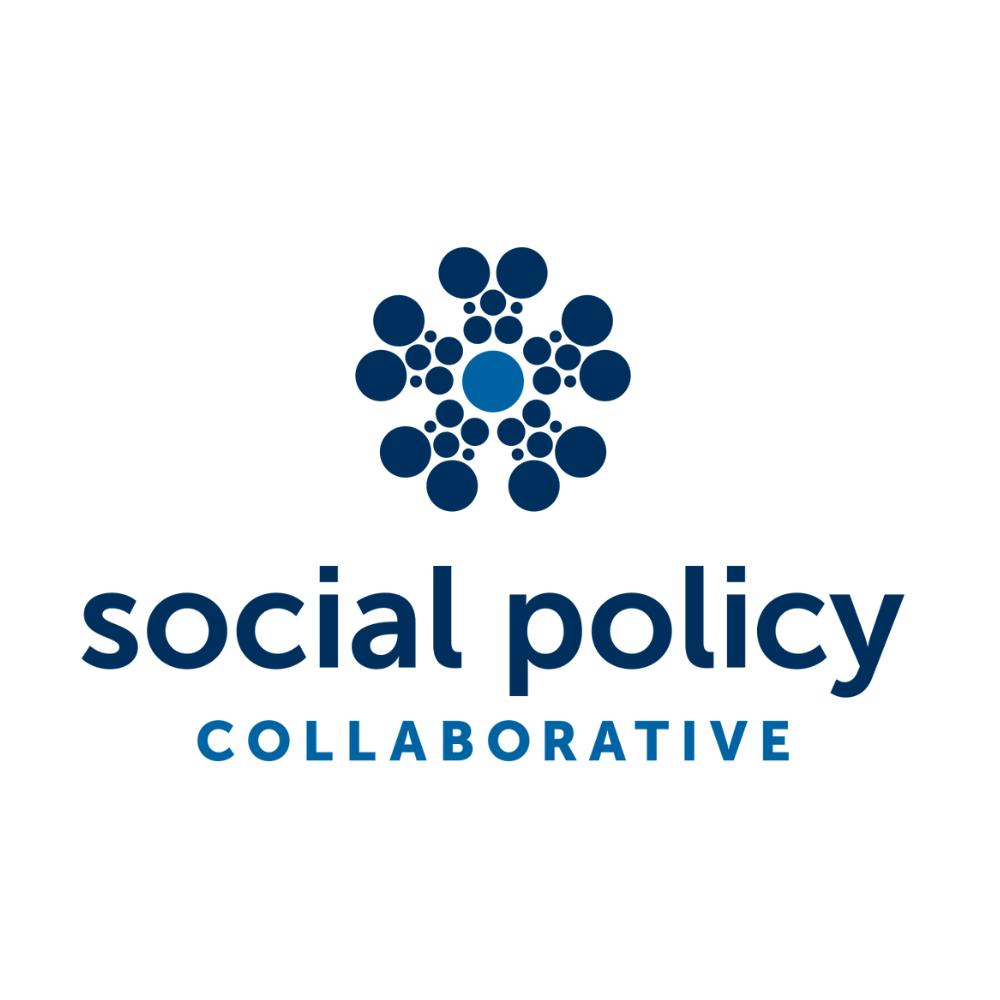The Social Policy Collaborative (SPC) is a diverse collective of 17 social service organizations in Calgary, representing sectors such as homelessness, mental health, and addictions. Our primary objective is to inform public policy development that improves Albertans' economic and social well-being. Under a new fiscal framework that mandates balanced budgets and debt repayment, Budget 2024 shows funding increases in areas such as affordable housing and recovery supports but also keeps pace on other poverty-reducing priorities such as education, health and Assured Income for the Severely Handicapped (AISH). In our pre-budget submission, the SPC asked for improvements in areas such as income support, AISH, affordable housing, training programs for those with employment barriers, and greater budget transparency.
Project
Alberta Budget 2024
A review from the Social Policy Collaborative
26 March 2024

Introduction
Affordable Housing
We are pleased that funding for affordable housing in Budget 2024 has surpassed inflation and growth. Specific budget line items include the rent supplement program which grew by approximately 9.19% (going up by $7.3 million), and the Affordable Housing Partnership Program by 35%.
The government has an affordable housing strategy, Stronger Foundations. To date, 1,361 new affordable housing units have been created since the strategy was launched in 2021. As part of the strategy, the government committed to increase the supply of accessible and affordable housing stock in Alberta by 13,000 housing units between 2022-2032. Capital Maintenance and Renewal funding for seniors facilities and housing has been allocated $40 million per year over the next three years, marking a 25% increase from Budget 2023. The budget also includes increased funding for homelessness and support services in the amount of $25 million, or a 13.3% increase from the previous year, and an additional $24.5 million this year and $70 million over three years for more shelter spaces.
Mental Health and Addiction
In 2020 the Government of Alberta began the process of transforming its approach to mental health and addictions through a recovery-oriented model of care (ROSC). Several initiatives have followed since the creation of the ROSC, including establishing a new Ministry of Mental Health and Addiction, removing daily user fees for publicly-funded addiction treatment spaces and adding close to 10,000 publicly-funded addiction treatment spaces. The operating budget for mental health and addiction services has steadily increased since 2020, with a further increase of 15% in Budget 2024 compared to the previous year. The Ministry is introducing a new mental health and addiction organization and a "Centre of Recovery Excellence" to consolidate all mental health and addiction services. The Capital Plan includes $328 million, with $191 million from the Province and $137 million from the Federal Government, for building recovery communities and mental health facilities for children and youth in different communities. This plan also allocates $135 million in capital grants, marking an 87% increase from Budget 2023.
AISH and Income Supports
Provincial income support is intended to help people meet their basic needs when faced with a personal crisis or economic disruption that prevents them from earning income from employment. Caseloads for both AISH and income support have exhibited a consistent upward trajectory year-after-year since 2015. In 2024, the caseload for AISH grew by 5% and for Income Support by 4% compared to the previous year. While the funding for AISH increased to accommodate growth and indexation at 4.25%, funding for income supports remained flat at $792 million for Budget 2023 and 2024. It’s unclear if the spending decrease is due to a prediction that caseloads will also decrease in 2024 or a signal that these programs are being re-designed. The 2023 mandate letter for the Minister of Seniors and Community Social Services indicated the Ministry must commit to a feasibility check of a “short-term disability” program to support Albertans returning to work when medically able.
Early Learning and Child Care
Affordable and high quality child care is critical for Albertans with young children so they can pursue education and work. In 2021, the Alberta and Federal governments signed a child care agreement. This agreement promised to create 42,500 new regulated child care spaces and aims to reduce child care fees by half, reaching an average of $10 per day for children under six by 2026. Recently, responsibility for affordable child care programs was transferred from the Ministry of Children’s Services to the Ministry of Jobs, Economy, and Trade, with the latter receiving $200 million from the federal government in Budget 2024. Funding for affordable child care spaces is intended to grow by an additional $102 million over the next two years, reaching $1.6 billion in 2026 to support the goal of achieving $10-a-day child care by the end of 2025-26. Funding for early child and youth intervention services will rise by 2.7% to $152 million while an additional $22 million over three years will be used to link foster care rates to the Consumer Price Index. This is a positive development as maintenance rates have remained unchanged since 2018.
The Alberta Child and Family Benefit will see an increase of 9.5% in funding, exceeding indexation and population growth.
Education
Community well-being is closely tied to the quality and accessibility of public education, ensuring that all children, regardless of socioeconomic status, receive a good education. Education is a shared responsibility; it serves the common good.
Budget 2023 increased education funding by 5.2% from 2022, and Budget 2024 showed a further increase of 4.4%. Budget 2024's Capital Plan allocates $1.9 billion to construct new schools, with an additional $103 million for the modular classroom program to address growth demands. Budget 2024 also includes $842 million of new funding to hire 3,100 education staff, including teachers and school support staff.
Workforce and Training
Funding for adult education and workforce training under the Ministry of Advanced Education has increased in Budget 2024. The Ministry’s operating expense is now $6.3 billion, which is $189 million or 3.1% higher than Budget 2023. The budget also includes $2.5 billion in direct operating support to Alberta post-secondary institutions and, to address the shortage of skilled trades workers, $102 million is allocated over the next three years to create an additional 3,200 apprenticeship seats in high-demand areas. Finally, funding for apprenticeship learning grants has increased to $85 million in Budget 2024. A further $5 million has been allocated to assist low-income and vulnerable Albertans engage with work, education and volunteer opportunities.
Affordable Public Transit
The Alberta Government continues its promise to help address inflation by funding municipalities that operate public transit with affordable public transit fares. For 2024-2025, $5 million is allocated to supporting transportation for people living on low incomes and vulnerable Albertans now in eight cities including Camrose, Hinton, Leduc, Lethbridge, Red Deer, Spruce Grove, as well as Edmonton and Calgary.
Conclusion
In conclusion, Alberta's Budget 2024 addresses some key social issues that positively impact Alberta’s social safety net and the people we serve in Calgary. The increased funding for affordable housing, mental health, and child care demonstrates the government's commitment to improving the well-being of Albertans. The increased funding for affordable housing and the substantial increase in funding for mental health and addiction services are particularly commendable. As the Social Policy Collaborative, we are encouraged by these positive steps and look forward to continued collaboration with the government to further enhance the economic and social well-being of all Albertans.
We wish to thank Master of Public Policy Student Francine Nelson from the University of Calgary’s School of Public Policy for her support with this fact sheet.
Focus Areas
Tags
Attribution
Related Projects

Indigenous perspectives on building a future where there is enough for all
Indigenous teachings and oral storytelling traditions capture the conversations, wisdom, and experiences shared during the pipe ceremony

Calgary’s Living Wage is $24.45 per hour
Living Wage now almost $10 per hour higher than Alberta's minimum wage

Civic Engagement and Community Connections
Learn more about who to connect with on the issues you care about

2023 Report to Community
Research, advocacy and engagement drove a marathon year of advancing Enough for All

